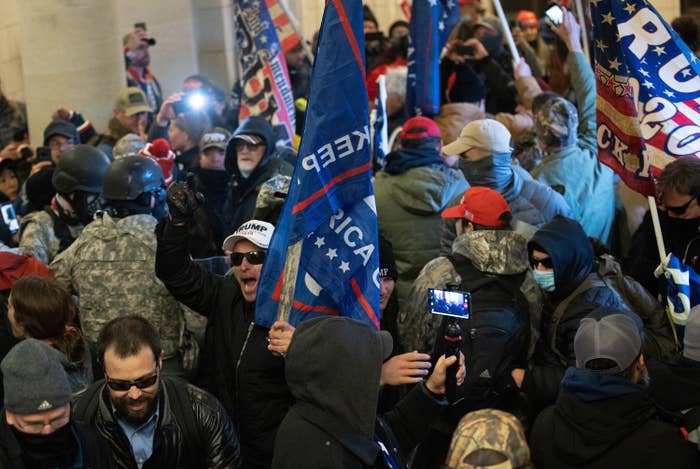
WASHINGTON — When Robert Reeder sat down with two FBI agents in April to talk about his involvement in the Jan. 6 riots at the Capitol, he described himself as an “accidental tourist with a phone trying to document everything.”
The government wasn’t buying it. Reeder “was a rioter violating the law; not a journalist; not a tourist,” the prosecutor countered this month in a brief that slammed Reeder’s apparent lack of remorse despite pleading guilty. It made the case that he should serve jail time as a “dose of reality.” When Reeder’s lawyer objected to calling his client a rioter, the prosecutor struck back, attacking Reeder’s efforts to portray himself as a “lost tourist,” a “hapless tourist,” and an “innocent and unlucky tourist.”
In the months since a Republican member of Congress went viral in May for comparing footage of rioters inside the Capitol to a “normal tourist visit,” the word has become a symbol of GOP efforts to downplay the violence on Jan. 6 and criticize the investigation. The “tourist” comparison has struck a nerve not only with the prosecutors bringing these cases but also with the presiding judges. In court filings and hearings, they’ve made clear just how much it bothers them.
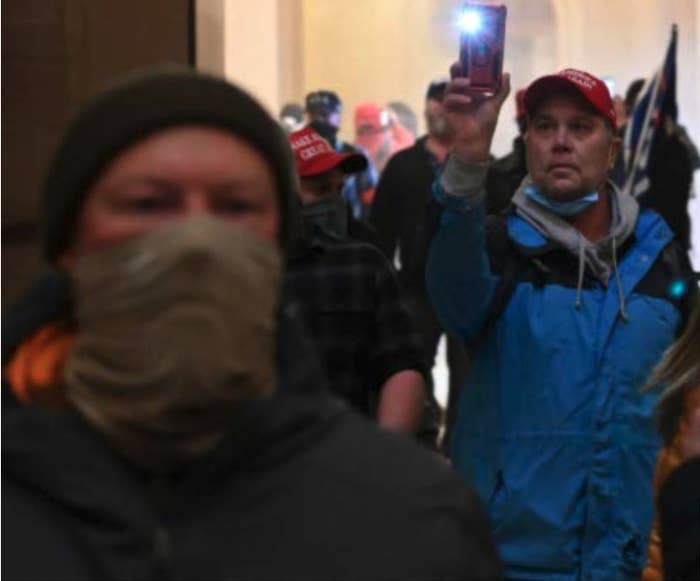
The government accused Reeder of trying to falsely cast himself as a tourist and downplay his participation in the attack on the Capitol in hopes of securing a lighter sentence. Reeder was supposed to be sentenced Aug. 18, but the sentencing was postponed after new videos surfaced hours before the hearing that appeared to show Reeder assaulting a US Capitol police officer.
“The Defendant was not an innocent and unlucky tourist,” Assistant US Attorney Joshua Rothstein wrote in an Aug. 13 brief; “he was an active participant in criminal behavior against a sitting branch of government.”
A judge and prosecutor in an entirely separate Jan. 6 case took a swipe at the “tourist” reference this week too. Leonard Gruppo of New Mexico appeared before US District Chief Judge Beryl Howell on Wednesday to plead guilty to one misdemeanor count for parading, demonstrating, and picketing inside the Capitol. Howell asked Gruppo what exactly he was demonstrating about when he walked into the Capitol — was he there to protest Congress certifying the results of the election?
Gruppo paused. He replied that he was there to support former president Donald Trump. That answer didn’t satisfy Howell, who pushed him to explain further — he wasn’t just a “tourist” looking around, right? Gruppo agreed. When the judge asked the government to confirm that Gruppo’s conduct on Jan. 6 fit the elements of the crime he was pleading guilty to — that is, that he had disrupted Congress — the prosecutor said that was correct, and that for someone to plead guilty to the “demonstrating” charge, their actions had to go beyond “tourism.”
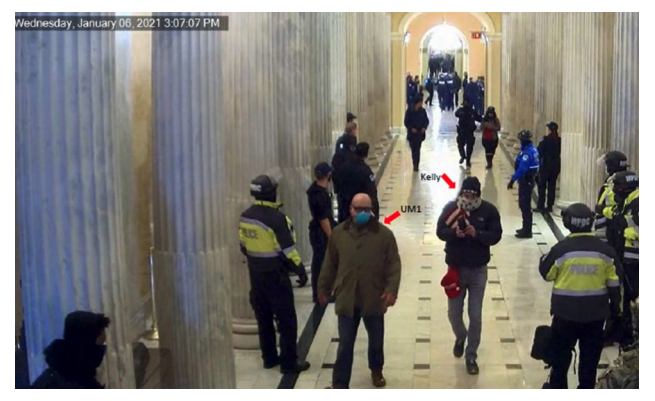
The “tourist” gripe came up in the case of Joshua and Jessica Bustle, a Virginia couple who, like Reeder and Gruppo, pleaded guilty to demonstrating in the Capitol. The Bustles were arguing for a sentence of probation, while the government wanted them to serve a period of home incarceration. The prosecutor urged the judge to consider that even though the couple pleaded guilty to a relatively low-level crime, their decision to enter the Capitol “took place in the context of a large and violent riot that relied on numbers to overwhelm law enforcement, breach the Capitol, and disrupt the proceedings.”
“Make no mistake,” Assistant US Attorney Michael Romano wrote in the government’s July 30 brief, “no rioter was a mere tourist that day.”
Rothstein repeated that line verbatim in the initial sentencing brief he filed the following week in Reeder’s case.
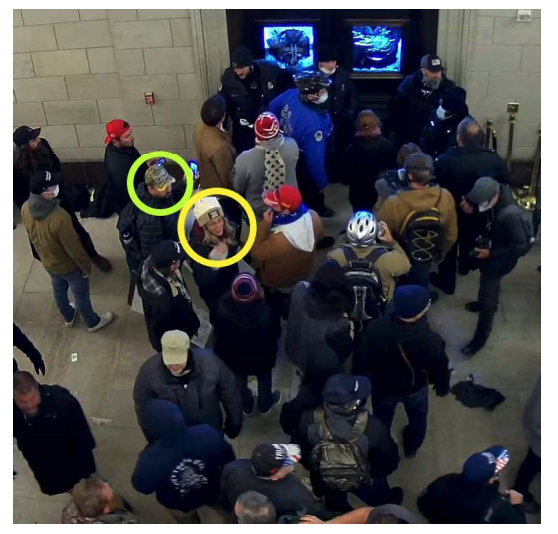
US District Judge Thomas Hogan picked up on Romano’s thread during the sentencing hearing for the Bustles on Aug. 4, rebuffing the idea that the couple were “tourists” after one of their lawyers tried to argue that it was unfair to characterize them as rioters. The judge noted that as they entered the Capitol amid the large crowds of people, they would have heard blaring alarms, walked past broken windows, and smelled pepper spray in the air. He sentenced them to a term of home confinement — one month for Joshua and two months for Jessica.
“This was not a normal situation,” Hogan said.
Other judges have previously pushed back on the “tourist” comparison. Long before Georgia Republican Rep. Andrew Clyde’s remarks sparked widespread backlash in May, Howell had commented during a hearing in March that people who arrived in DC with tactical vests and communicated in advance about how to get bear spray weren’t in the city as “normal tourists.”
In June, during the first sentencing in any of the Capitol riot cases, for defendant Anna Morgan-Lloyd, who also took a misdemeanor plea deal, US District Judge Royce Lamberth called out Republicans who had used the term.
“I’m especially troubled by the accounts of some members of Congress that Jan. 6 was just a day of tourists walking through the Capitol,” Lamberth said at the time. “I don’t know what planet they were on.”
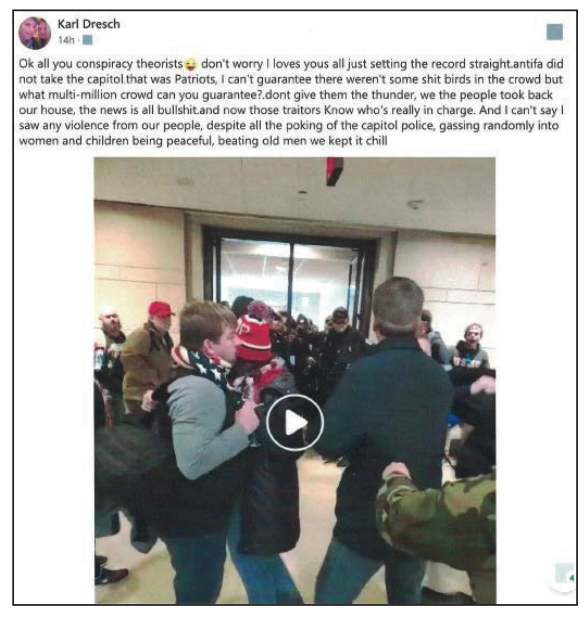
Shortly before announcing a sentence earlier this month for defendant Karl Dresch, US District Judge Amy Berman Jackson spoke about the seriousness of the assault on the Capitol and how participants were responsible for what happened even if they didn’t commit some of the more violent crimes that day. She read aloud an excerpt from a Facebook message Dresch had posted the day after the insurrection in which he wrote, “we the people took back our house, the news is all bullshit.and now those traitors Know who’s really in charge.”
“So,” Jackson said, “he’s not your typical tourist.”

